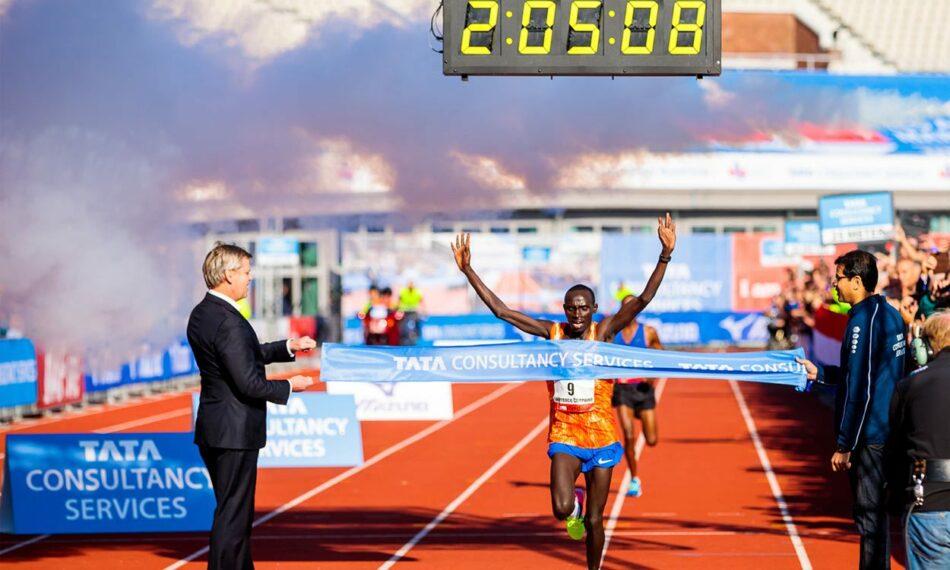The 2019 Boston and Chicago Marathon winner admitted to three anti-doping rule violations
Lawrence Cherono, a two-time major marathon champion and the former world number one over 26.2 miles, has been banned for seven years for both doping and tampering.
The 35-year-old admitted to three anti-doping rule violations, including tampering for attempting to mislead the investigation.
Cherono, who has a personal best of 2:03:04 in the marathon and is 12th on the all-time list, was suspended by the Athletics Integrity Unit (AIU) in 2022 after testing positive for the banned substance trimetazidine, in an out-of-competition test.
He has now received a four-year ban for the positive test and was given another four years by the AIU for the tampering offence. However, as Cherono admitted to the violations, he has been given a one-year reduction to his ban.
Lawrence Cherono (Amsterdam Marathon)
The AIU said: “In attempting to explain the positive test, Cherono initially said he had been given the antibiotic Erythromycin and was also injected with an unknown substance by a doctor to treat stomach problems, but then also attempted to implicate his training colleagues for the failed test, claiming they were ‘jealous of his success’.
“However, in a subsequent written statement, Cherono said he had been inadvertently given Trimetazidine in the form of Carvidon tablets by his wife – instead of the painkillers he had requested – to treat muscle pain following training on 22 May 2022. According to the runner, his wife had been prescribed the Trimetazidine four days earlier at a medical centre.
“To support his explanation, Cherono provided a laboratory request from the medical centre, including hand-written details of medications prescribed for his wife, along with a photograph of the underside of tablets enclosed in their blister packaging. In collaboration with the Anti-Doping Agency of Kenya (ADAK), further investigations into the laboratory request and additional medical documents provided by Cherono as proof of his wife’s treatment at the medical centre, revealed “several inconsistencies”.
“Following a request from ADAK to the medical centre in November 2022 for additional information to verify the documents independently, the clinic director confirmed in December 2022 that they ‘were not genuine/official documents from the clinic and that the information they contained was not true and accurate’.
“Following this development, the AIU said…
CLICK HERE to Read the Full Original Article at AW…

